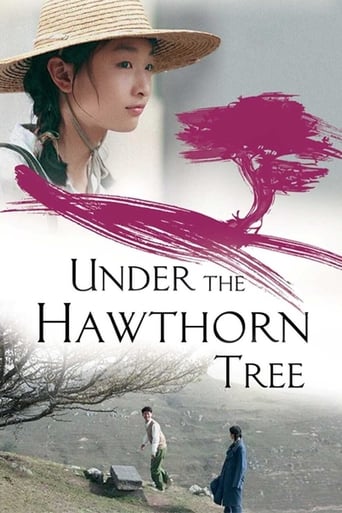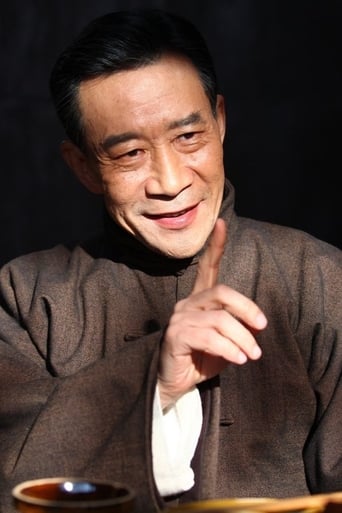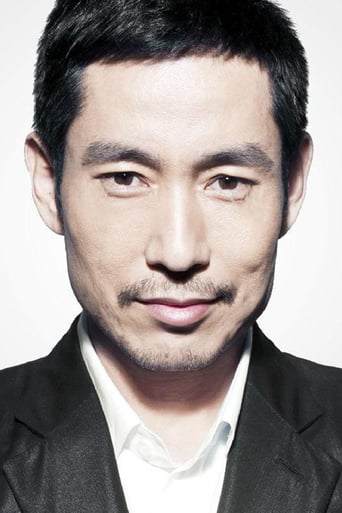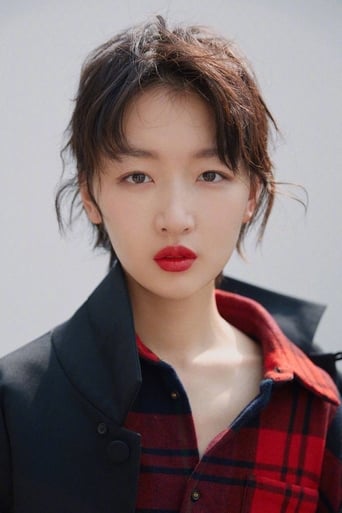

Under the Hawthorn Tree (2010)
The daughter of a right-winger, schoolgirl Jing Qiu is sent to the countryside for reeducation, and tasked to help write a textbook. There she meets Lao San, a young soldier with a bright future ahead. Despite the class divide and parental disapproval, romance blooms against turbulent times.
Watch Trailer
Cast


Reviews
A Major Disappointment
A brilliant film that helped define a genre
This is one of the few movies I've ever seen where the whole audience broke into spontaneous, loud applause a third of the way in.
This is a coming of age storyline that you've seen in one form or another for decades. It takes a truly unique voice to make yet another one worth watching.
The truth is there are very little movies that make me cry and this one is probably the best. Maybe it's because I love Asian films, especially Chinese, because they have a certain sadness and drama into them. The description of the movie is a poor example of the greatness of emotion that the movie reaches, for sure. The movie tells the story of an innocent young love that ends tragically. But the freshness of the two young people that are in love and happy, blends beautifully with the restrictions of the society and the fear of a bad future. The optimism of the lovers leaves you with a bitter sweet feeling in the end, when the movie concludes. I wasn't sure about the black text sequences that often pop up to provide a boost to the film, but eventually they turn the movie into a novel and you don't even notice them any more. Nice performances from the actors, full of emotion. So, 7 out of 10.
There is a scene, about two thirds of the way through, in which an older woman, mother to three children, sits down with her eldest daughter and the boy she has fallen in love with, and for about five minutes, they speak to each other. These are hard times – all three know it. At the beginning of the scene, the mother is sceptical. She treats the two as children, with their heads in the clouds. But the conversation develops, and gradually, we realise a change in the mother. She cannot back down – in practical, surviving terms, she is in the right. But she softens her approach, and by the end, even has a kind of basic respect for the two, behind her frosty exterior. For she has seen the love that these two have for each other, and recognised it. It was then that I knew I was watching a great movie If 'Lola' was a disappointment in the Asia Triennial Film Festival this year, Zhang Yimou's new film – a love story set during the Chinese Cultural Revolution – makes up for it tenfold. It's not very often I get the opportunity to rave about a film like this, as they are so rarely done well; cynicism, plot complication and saccharine cliché at turns are what often makes a love story such as this horrifically superficial and painful to watch. But Yimou knows what he is doing. Arguably the finest working Chinese director (with the masterpieces 'Raise The Red Lantern', 'Hero' and 'House of Flying Daggers' to his name), he has succeeded here in making a beautiful, heartfelt film, spilling over with the love and care that has gone into its production. Zhang Jingqiu is a student sent to do research and write a report for her school on a small village in Yichang City. She stays with the head of the village and his family. While there, she meets Sun, a geology student. What follows is inevitable. But how delicately rendered it is: Jing is the most beautiful, innocent young woman Sun has ever seen, and Jing, emotional and vulnerable, is amazed by him. Love at first sight! But this isn't as whimsical as it sounds. Yimou hasn't completely forgotten his political ideals and ability for scathing criticism: with this latest endeavour, he explores just how stifled and suffocating Mao's regime was for everyone under his power, and the emotional deadlock that threaten to destroy his protagonists at every turn. Frolicking, even in the most innocent sense of the work, was risky; Sun and Jing are from different classes, exacerbating the issue. Were they to be found out, her life and ambitions to work as a teacher would be ruined.I was unsure, during the first half of the film, what to think. Yimou makes some interesting structural choices as regarding his narrative – many of the scenes are divided by inter-titles, telling us of an event we are not allowed to see, and then moving on to its aftermath. Most directors would die before doing this – especially in a film requiring the emotional impact this needs – and, I admit, I doubted its benefits at first. But instead of hindering the drive of the plot, Yimou has used it in such a way – not to cut the film into a digestible running length, but simply to avoid over melodramatics, and focus (almost entirely) on the couple in question. Supplementary information is given to us by other means – the filmed scenes are belong exclusively to Yimou's exploration of our two protagonists' relationship. It works perfectly. Of course, we all know the rules. Both lovers are alive at the beginning; the same cannot be said after the end credits begin to roll. What makes this movie so wonderful isn't its startling originality; it isn't going to revolutionise cinema as we know it, or spark off long lasting controversy. Rather, what we are offered is a little less prestigious, but by no means less special. What we find is emotional honesty – when we start to cry at the end, we don't feel cheated; instead, we revel in the director's success. More importantly, though, we have felt for his characters, having engaged with them completely, and have a kind of renewed respect for the kind of pure, unconditional love we have been shown. The film is yet another example of Yimou's mastery of the 'anti-melodrama' – much like his early work, this is incredibly restrained, beautifully measured and patiently observed, shot through with a warmth and tender humanity that shouldn't inspire anything but admiration. Cynics – stay away. But for all the romantics out there (of which I, admittedly, am one), I couldn't recommend this more highly. Simply put, it's exquisite.
Ever since Crouching Tiger, and Hidden Dragon received the Academy Award, directors in China start to make films that do not make sense, and do not tell a story, because they believed that confusing the westerners is the best way to get the Academy Award.However, they all failed. There is one and only one Crouching Tiger, and Hidden Dragon, which most Chinese people do not even understand, but was acclaimed as one of the best films that represent China.Among the losers is Mr. Yimou Zhang, the director of Under the Hawthorn Tree, a film, as you can see from the IMDb rating, did not receive a great response in the western world, but was vastly praised as one of the best movies in recent years.Certainly, for people lack of sufficient knowledge and deep understanding of the Cultural Revolution and the opening policy thereafter, it is difficult, if not impossible, to appreciate the beauty of this film. But at least for Americans, think about the time when country music started to regain popularity. Think about the time when people are tired of the so-called modern way of life. Think about the time when you were tired from the craziness of metropolitan cities. Think about your high school sweetheart who you loved but never had sex with. You probably will have a little more understanding of the success of this film in China.Jingqiu is a representation of the kind of sweetheart that a generation, or maybe generations, of Chinese men have been dreaming about. She is sweet. She is not hot in a sexual way like Megan Fox, but she is the one that a huge amount of Chinese men would like to marry. She is pure. She loves a man wholeheartedly. She is jealous, but in a cute way. She is strong when facing challenges.And, it's been long since Chinese people had a film like this.Today, with the fast economic development and westernization, Chinese people see sex scandals and money-centered relationships way too often. They started to get reminiscent of the past, when love was pure though life was hard. Jingqiu came to them at a perfect time to make them recollect the memory they had back to the good old times.As a final comment, in a lot of ways, this film is just like "Country Road, Take Me Home."
After the debacle that was A Woman, a Gun, and a Noodle Shop (2009), a disappointing remake of the Coens' Blood Simple (1984), Chinese auteur Zhang Yimou restores his reputation with his latest effort that is a nostalgic throwback to the pre-Hero period in the nineties that made the director one of the few Asian masters of the dramatic form. Under the Hawthorn Tree is clearly not Zhang at the top of his game, but it is a reminder of his talent in crafting powerful tearjerkers set in the various turbulent eras of China's modern history.Hawthorn Tree is similar to The Road Home (2000) in approach. It is a beautiful love story acted out by a competent cast, at times playful, at times emotional, but never too overtly sentimental. This is especially so for Hawthorn Tree, which some have described as "the purest love story ever told", and I believe it just might be true. I have not seen a filmmaker approach the near-ancient notion of "love at first sight" and "the blossoming of a boy-girl romance" with such purity and subtlety in direction and narration in years.Zhang has unearthed a new acting gem in Zhou Dongyu, a young actress who may just be the next "Gong Li", that is if she continues to place herself under the director's radar for the next decade. Like Zhang Ziyi, who similarly made her debut in The Road Home, Zhou's acting is striking because she balances restrain with her natural ability to emote, the latter very potently displayed in the film's final act. Her chemistry with the male lead, played by Shawn Dou, who is also a newcomer, is strong enough for Zhang to heavily rely on to engage viewers.As always for every Zhang film, the cinematography by Zhao Xiaoding (an Oscar nominee for House of Flying Daggers (2004)), is stunning, as the film captures and juxtaposes the misty villages with dusty urban buildings in great visual detail. Admirers of Zhang's visual style however would notice that Hawthorn Tree does not feature the flamboyant colors that characterize most of his works such as Raise the Red Lantern (1991), Hero (2002), and Curse of the Golden Flower (2006). Yes, the color palette is more muted here, and there is a reason for it.I would think Zhang desires to paint a more poetic picture rather than being unnecessarily grandeur. After all, this is a film about the innocence of first love. With Under the Hawthorn Tree, Zhang has made a romance picture that is not only memorable for the star performance by Zhou, but also admirable for the film's artful simplicity.GRADE: B+ (www.filmnomenon.blogspot.com) All rights reserved




